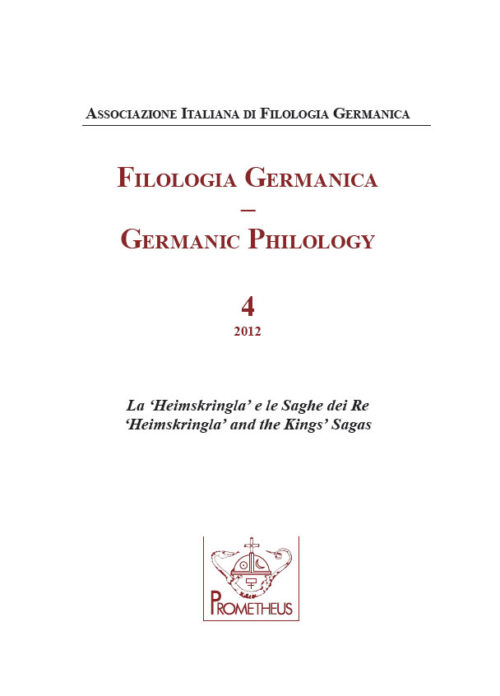Grand finales in the kings’ sagas between Christian piety and Germanic stoicism
DOI:
https://doi.org/10.14672/fg.v4i.2613Abstract
The Old Norse kings’ sagas often display grand finales and impressive endings. From time to time, they also display the so-called ‘beautiful deaths’, i.e. those deaths that have the immediate advantage of rousing admiration in a secular sense and to convey immortality, at least in the memories of people. The authors of the kings’ sagas seem to be fascinated by the ability to endure physical suffering and to maintain a virile and cool attitude at the moment of death, and by glorious and spectacular deaths on the battlefield, as were the poets from whom they took inspiration and information. However, with the conversion to Christianity, the heathen conception of a ‘beautiful death’ interpreted as being a violent death, was gradually replaced by the notion of ‘good death’, that not only required the fulfilment of the last duties to ensure eternal life but, if it was a violent death, it had to occur while fighting for a just cause. As the Christian faith became firmly established, its insistence that a king should be morally worthy of his role became more important: a king who was thought to be living in a state of mortal sin or to be suffering damnation in Hell after his death was seen as being in fundamental conflict with his royal function. The aim of this paper is to discover, through the methods of literary analysis, the attitudes of 13th-century historians towards the death of their royal characters in the light of Christianity, the way they coped with the new dictates of their faith and how they attempted a reconciliation between Germanic stoicism and Christian piety.
Pubblicato
Fascicolo
Sezione
Licenza

Questo lavoro è fornito con la licenza Creative Commons Attribuzione - Condividi allo stesso modo 4.0.
CC-BY-SA



